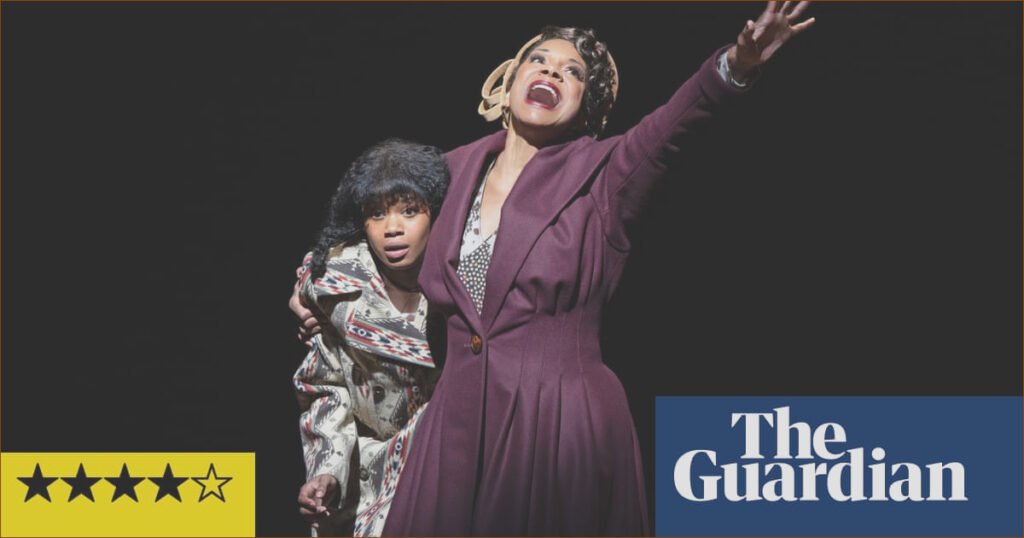In the pantheon of child stardom, one thread runs consistently: the overbearing parent. From Judy Garland’s tumultuous timeline to the spectacles of Dance Moms, the archetype of the relentless stage parent has been woven into the fabric of our cultural consciousness. However, amidst this tapestry, a figure looms large—Mama Rose, the indefatigable and ferocious matriarch who navigates the gaudy underbelly of show business in Stephen Sondheim’s celebrated musical, Gypsy.
This iconic character, inspired by the life of the legendary burlesque star Gypsy Rose Lee and drawn from her memoir penned in 1957, is considered a pinnacle role for musical theater divas. The journey to embody this formidable mother has been tackled by luminaries such as Ethel Merman, Angela Lansbury, Bette Midler, Tyne Daly, Bernadette Peters, and the indomitable Patti LuPone, who redefined the role in the 2008 revival with a resounding Tony-winning performance. Yet, in the latest revival directed by George C. Wolfe at the Majestic Theatre, Audra McDonald presents a Rose with a stirring new depth—a tempest of fierce ambition and palpable vulnerability.
From her initial entrance, McDonald’s Rose is an electrifying force—a whirlwind of energy, flanked by a small dog and a tattered handbag, barking commands at a befuddled kiddie talent show director. She’s not merely a diva in pursuit; she embodies a tumultuous blend of desperation and fierce maternal instincts, striking down barriers like a gale-force wind.
Notably, this production marks a groundbreaking moment as McDonald’s Rose and her family reflect a generational shift with Black actors stepping into these pivotal roles. McDonald’s portrayal imbues her character with layers of tragic resilience; her uphill battle, a grueling ascent marked by obstacles and personal demons. Her children, Baby June and the more reserved Louise, are sheltered from a normal childhood, destined—by the whim of their desperate mother—to be stars in a decaying vaudeville world.
As the narrative unfolds, the complexity in McDonald’s performance shines through. Beneath the abrasive panache lies a nuanced fragility; she is driven yet also a victim of her dreams. Her classical soprano voice—delicate and lyrical—introduces a new texture to the character’s brash exterior. When she belts out numbers like “Everything’s Coming Up Roses,” rather than bulldozing expectations, she invites them into her aching heart.
But it’s during the second act where McDonald’s mastery comes to the fore. She digs deep into Rose’s corrosive ambition, presenting a mother whose dreams claw at her sanity. The backdrop—a montage of peeling advertisements and rundown boarding houses curated by Santo Loquasto—paints a vivid portrait of an era where gilded dreams clash brutally with economic despair.
The lush orchestration, led by Andy Einhorn, resounds beautifully, invigorating the spirit of Jule Styne’s timeless score. As supportive characters like the bumbling candy salesman Herbie and the evolving Louise come to life, the heart of the show mirrors Rose’s relentless push for stardom, which morphs into a gripping dance of desperation and longing.
What truly electrifies this revival is McDonald’s transformation of the narrative. Her Rose is a complex powerhouse, culminating in the poignant act of “Rose’s Turn.” Alone on stage, every emotion—sweat, tears, and fervor—emanates from her presence, giving life to a portrait of a mother utterly consumed by love, ambition, and absolute desire. It’s an unmissable performance, a breathtaking exploration of the relentless pursuit of dreams that resonates deeply, regardless of the viewer’s previous skepticism towards yet another rekindling of this Broadway classic.
In essence, Audra McDonald doesn’t simply embody Mama Rose; she reinvents her, ensuring that this evergreen tale of sacrifice and ambition burns brightly in the hearts of a new generation.

